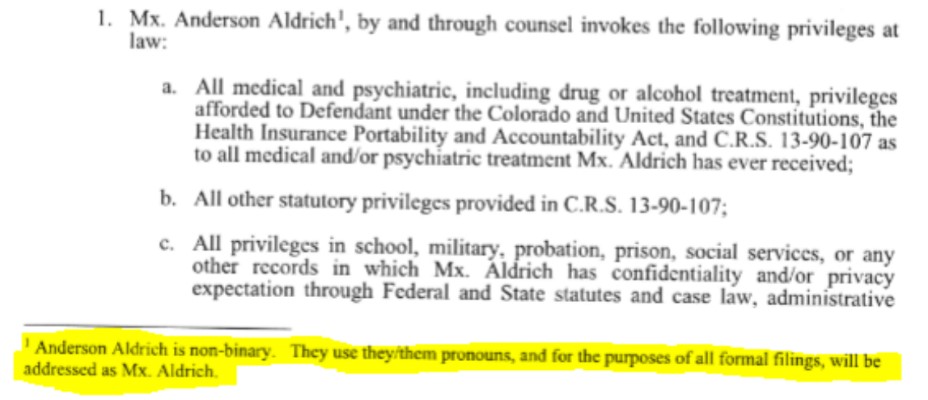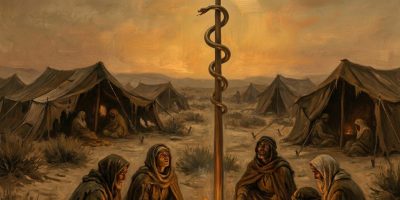Like anyone else watching the news last weekend, we were saddened to hear what took place in Colorado Springs. It’s hard to understand how anyone could knowingly inflict such harm and trauma on another human being—and willingly extinguish another precious life.
A tragedy like this used to be seen and experienced as an opportunity to draw hearts together (think 9/11 or the Challenger disaster). The statement released by The Church of Jesus Christ of Latter-day Saints read, in part:
We join with others in mourning the loss of those whose lives were taken and offer prayers of comfort and deepest condolences to their loved ones. We also pray for healing for the survivors of this shocking shooting and express our love to them.
Yet this no longer seems to be our public reflex.
Scandalizing big things. The same day as the shooting, the troubled man’s connection to the Church of Jesus Christ in years past was seized upon as somehow consequential to the horrific violence. Without even waiting until a day had passed and more was known, some began leveraging the speculation to paint the most incendiary and dark picture imaginable. It started with these tweets from one of our own brothers of faith:

Over the days that followed, a convulsion of similar commentary seized upon Twitter, a small sampling of which follows:
- “Creating a climate of fear, anger & hatred of queer people leads to tragedies like what happened in Colorado Springs.”
- “Colorado Springs is home to one of the largest Christian fascist groups in the country. Focus on the family.”
- “Right-wing extremists are doing a genocide in broad daylight.”
- “There is a direct line from the pillaring stacks of anti-gay, anti-trans rhetoric distributed in Mormon general conferences, Mormon meetinghouses … straight to the mass shooting in Colorado Springs.”
- “The church has been passively letting its queer people die for decades. I’m not surprised someone felt called to make it more active. … The church does not, will never, get a pass for the people their words have killed.”
One woman even referred to the shooter as “the Mormon domestic terrorist in Colorado.” Cable TV shows were likewise filled with emotional anchor lamenting the threat represented by conservatives, Republicans, and religious people. All this was taken for granted as being the clearest explanation for the violence—including two different Newsweek articles by Khaleda Rahman and Nick Reynolds. The latter speculated on possible direct influences from the shooter’s estranged Republican grandfather, church doctrine on marriage, and Elder Holland’s talk at BYU. Reynolds concluded with dark insistence that the Church “can’t avoid its own complicity” and cited a string of activists who were more than happy to use this opportunity to inveigh against their beloved faith, “We have to face it. Anti-LGBTQ rhetoric from the church influences members.”
Then, on Tuesday of this week, more information came to light. Two days after the killings, the shooter’s public defender released this additional information as part of a court filing:

Oops! Wait just a minute. Hold the phone. All that stuff about how he clearly must have attacked people at this bar because of deep-seated hatred towards gay people no doubt due to his Latter-day Saint upbringing?
Big whoops. Turns out he is a member of the LGBT+ community. (Oh, and he abandoned the Church a decade ago too).
And just like that, much of the energy went out of the well-oiled grievance machine online. Did the accusers shift their focus to other potential explanations—perhaps what this man’s departure from and rejection of a faith of Christian mercy might have meant for his radicalization? Did we see public expressions of self-reflection and acknowledgment of error—perhaps even an article retraction and tweet-deletion (or two)?
Of course we didn’t. Instead, the preoccupation shifted to the shooter’s father, speculating on how his long years in the porn industry, extreme conservative views and hostility towards gay people surely says something about that same distant religious influence on his sick son.
This isn’t about the truth for some people. It’s about the cause.
And whatever news—big or small—that might advance this great cause is game.
Scandalizing small things. Last Sunday, the same day as the shooting, journalist Peggy Fletcher Stack tweeted the following about news that a private educational facility, American Heritage School, had been dedicated by Elder Ronald Rasband in Salt Lake City:

On the face, the tweet seemed designed to insinuate some sort of malfeasance afoot. In response, Hal Boyd, the national editor of the Deseret News, asked publicly why Peggy had chosen to “publish an allegation without confirming full factual validity” through a simple phone call and perhaps even invite him to comment. After pointing out how it was inaccurate (Hal is not the local paper’s editor and didn’t edit the piece in question), he also pointed out that no correction, amending, or qualification had been made of the original post “to make it factually accurate.”
By way of reference, Hal added that “60 percent of students” at the school are on scholarship, including “an orphaned refugee enrolling”—wondering out loud, “Why hate on good in the world?”
We had the same question. When we reached out to Peggy for comment, we appreciated her quick response. She explained, “My original tweet was a question. I was hoping for a conversation about when journalists should disclose their associations. In the end, I thought we could just agree to disagree. It was not personal.”
In her public response, Peggy also stood by her comment—adding that Hal’s relationship with the school and the fact that “your kids go to the school … should have been noted.” At this, Meagan Kohler pushed back:

To be clear, we don’t believe Peggy intended harm to Hal’s family. But we agree with Meagan that “there are more appropriate channels if ethical considerations are your actual concern”—and better ways to initiate conversation than “appealing to the outrage-mongers” on Twitter.
A journalism that embraces body slams. Among other things, it feels like we are witnessing the slow degradation of journalism, taking its place alongside a deformed atmosphere in both higher and primary education. In a recent article exploring “how to spot a hit piece,” our editor Jacob wrote:
Imagine if we began to accept body slams as an acceptable form of contact in basketball, then went on pretending it was still a normal basketball game we were watching. But, of course, it wouldn’t be. Body slams would fundamentally change the game. In like manner, rhetorical slams in journalism change the game fundamentally.
It does feel like, increasingly, this is the de facto way that many journalists and public commentators operate, perhaps especially among commentators and influencers with prior connection to or current interest in the Church of Jesus Christ.
Just one week ago, we wrote about the enormous skew in reporting on the recent church statement about federal legislation. And three weeks prior, we published an analysis of the clearly imbalanced hit pieces published about church finances in Australia. And three months prior, we documented ten different defamatory aspects of the AP Arizona abuse story.
Is anyone else seeing a pattern here?
The desperation to implicate the Church of Jesus Christ in any wrongdoing is dizzying and honestly breathtaking. The operating principle seems to be an embarrassing eagerness to seize upon any unflattering angle at all—no matter how far from reality the accusation requires us to go, or how much it breaks down upon closer scrutiny of the evidence.
We’re used to seeing this kind of behavior among divorcing spouses, but journalists? Radio hosts? The questions and issues they take up about the Church merit attention. But rather than reaching towards the truth about what has taken place, these writers and commentators often seem far more interested in telling a preferred story or sending a certain message.
In short, it increasingly feels to many of us as if a whole subset of journalists have abandoned—or are in the process of abandoning—all objectivity and fairness when it comes to “reporting” on the Church of Jesus Christ. For some of these writers and commentators, you start to wonder if that larger vision went away, would they have anything interesting left to say at all?
But that’s precisely the real tragedy: there are so many interesting things we could be talking about and need to be talking about. Urgent and crucial needs in the world around us begging for more exploration. Can we pay some more attention to those?
Journalist professor Joel Campbell recently shared with us some context:
This isn’t a new phenomenon to attack the Church. I can verify that the journalistic coverage of the late 1800s and first few decades of the 1900s were filled with these kind of hit pieces…. even much worse. The professionalization of journalism from the 1920s onward and some growing political clout of the Church seemed to have brought more fairness, but that fairness seems to be waning in news and popular culture.
The Church of Jesus Christ, of course, isn’t the only object of significant bias in media reporting, with other Christian faiths and figures, as well as conservatives as a whole, taking a similar beating. (And in the other direction, some especially incendiary conservative outlets likewise employ plenty of skew in their own reporting of liberal developments).
In so many cases, the small and incidental things take up huge amounts of attention, while the weightier and more consequential issues get passed over. When Jesus warned the “blind guides, who strain out a gnat and swallow a camel!” we think he may have been talking about just this kind of thing.
We wish we could say this was going to get better—but the opposite appears to be true, with what seem to be an acceleration of this kind of hit-piece journalism over recent months. We sincerely wish we could say now that the holiday season is upon us, we might expect some renewed generosity. But it was only days before Christmas last year that another similarly designed-to-be-damaging piece of journalism went up at the same local outlet in question.
Certainly, there are also good things to appreciate. For instance, we appreciate how Peggy Fletcher-Stack regularly tries to feature competing perspectives in her articles, which if far from what most journalists these days even attempt. And we appreciated Newsweek adding a statement on Tuesday from church spokesperson Doug Andersen, “disparaging an entire faith based on the behavior of a single individual who did not exhibit signs of believing or associating with members of the Church is problematic.”
It’s also worth noting that both Peggy and Cal genuinely saw something they felt concern about. We trust that they weren’t trying to create a fake scandal—and assumed they had observed something that deserved more public scrutiny. So, it’s not so much their desire to express that was concerning, as much as how hasty they (and we all) sometimes arrive at an accusation without adequate time, attention and conversation to make sure we’re getting it right.
Even and especially if things deteriorate further, we will continue to bear witness to what is happening—and do what we can to document it for the public record. Of course, if we’re not careful, we could fall into the same kind of overwrought ruminations that end up ironically compounding the negativity online.
That’s far from our intent. In fact, it is interrupting this “rhythm of negativity,” in the words of Elder Quentin L. Cook, an apostle in our faith, that has been one of our central aspirations from the beginning. And very often, this requires the articulation of another perspective on something, which as he said, “creates a pause in the discourse and allows people to evaluate where they stand on a particular matter.”
We want to keep our primary focus on raising encouragement and goodness in the world. That being said, there is something to be said for accountability—and encouragement of a return to fairness when something embarrassing, unfair, and dishonest has taken place.
We believe all the people involved know better—and have it in themselves to do better.
Let’s hope we can all take this opportunity to do just that.
*******
Erratum: An earlier draft identified Calvin Burke as a “former brother of faith” – a conclusion we mistakenly reached based on our observations of his ongoing comments about the Church. The article has been updated.
















